- Campus Services
- Budget Office
- Campus Controller
- Campus Planning and Design
- Career and Professional Development
- Event Operations
- Facilities Management
- Fire & Life Safety
- Institutional Compliance and Internal Audit
- Institutional Research and Decision Support
- Legal Affairs
- Mail Services
- Marketing and Public Affairs
- Parking Services
- Public Safety
- Sustainability
- Copy Jobs
- Campus Resources
- Marketing and Public Affairs
»2018 Environmental Audit
View the 2018 Environmental Sustainability Audit Executive Summary

Sustainable Purchasing Policy
Chapman University maintains its commitment to a “campus culture that promotes a sustainable future” in its Sustainability Policy, which was implemented in 2014. However, the University has no mechanism to ensure this sustainable decision-making process occurs. One of the surest ways to guarantee this change is to enact a University-wide sustainable purchasing policy that ensures consistency between departments.
Sustainable Procurement & Extended Lifespan of Furniture
Chapter 2 focuses on the ways we can purchase more sustainable furniture, as well as design new spaces on campus using used furniture and sustainable design techniques. Chapter 3 aims to reduce the amount of new furniture purchased by the university as replacements for broken items. Knowing the lifespan of the furniture and creating a plan for its replacement would allow the university to better prepare for the expense and keep the design of the building consistent.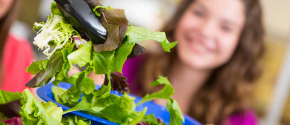
Local Procurement of Food
Food acquisition intended to meet the demand of developed countries encourages poor agricultural methods and creates resource-extraction trends that far exceed recharge rates. This chapter quantifies student, staff, and faculty preference for local and sustainable food in the effort to motivate Chapman University to define and increase the percentage of locally sourced food on campus. It analyzes local food procurement through Chapman Sodexo, OC Homegrown, locally sourced restaurants, and similar universities.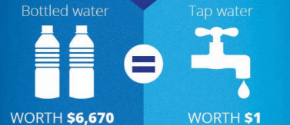
Plastic Water Bottles
One million plastic bottles are purchased around the world every minute and 480 billion were sold in 2016. This study analyzes single-use plastic water bottles on Chapman’s campus and provides information regarding how plastic water bottles adversely affect the environment. This chapter includes efforts Chapman has implemented to lessen the impact of plastic bottles, as well as looking at solutions of peer institutions.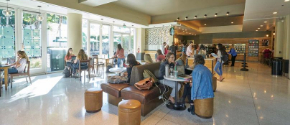
Waste Management of Disposable Coffee Cups
Coffee is a big part of college life for most students. However, examination for the daily waste management practices on campus regarding the hundreds of paper and plastic disposed cups is lacking. To embrace Chapman University’s commitment to sustainability, a cradle-to-grave material such as disposable cup should be carefully evaluated, and alternatives must be considered.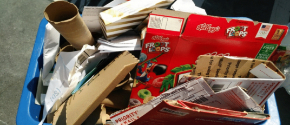
Waste Management & Recycling in Residence Life Communities
These chapters focus on recycling management within the residence life communities at Chapman University and aim to improve recycling habits among first-year students. Proper recycling habits can be confusing and there aren't many easily accessible venues to gather that information. By conducting waste audits and adding visible signage in key locations, we can create consciousness each time we dispose of something.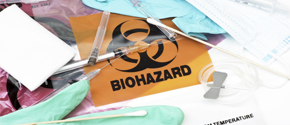
Procurement and Disposal of Hazardous Materials
Chapman University purchases hazardous materials such as corrosives and biological agents, for use in research and student instruction. The implementation of practices employed by peer and aspirational schools, as well as private businesses, can help minimize the amount of hazardous materials brought into Chapman, and ensure that all hazardous waste is disposed of properly.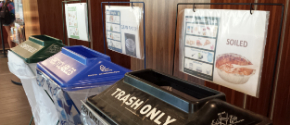
Comprehensive Waste Processing and Research Facility
For the University to grow in sustainability, significant labor and space must be dedicated to managing waste with environmental goals in mind. Now is an opportune time to redesign waste management streams that could help divert 100% of Household Hazardous Waste (HHW) with little to no additional effort by on-campus residents. This chapter proposes, a “Recycling Hub” or permanent space/room which can be dedicated to sustainably managing and tracking university waste.